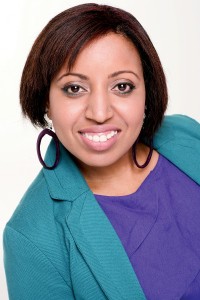Coaching with Logical Levels 3
In this week’s guest post Phil Manington shares how he uses a specific NLP model.

Coaching with Logical Levels
By Phil Manington
Anyone familiar with NLP will probably have come across Robert Dilts’s Logical Levels model. It is a great tool for exploring how and why we do what we do. It works at a system level and provides a powerful way of creating sustainable change in an individual or organisation.
It looks at our thinking across six levels:
- The Environment level involves the external conditions in which you live. Questions such as: “Where?”, “When?” and “With whom?” are typical Environment level questions.
- The Behaviour level refers to what you do in different environments.
- Capabilities (whether mental, physical or emotional) describe how you do what you do. What are your skills and strategies for taking action?
- Beliefs and Values define why you do something and shape the way you perceive the world. Beliefs can be both empowering and limiting.
- Identity consolidates whole systems of beliefs and values into a sense of self. It defines who you think you are, as an individual or an organisation.
- Purpose involves your connection to something that goes beyond yourself. At this level, useful questions are: “For whom am I doing this?” and “What is my purpose?”.
Many change initiatives focus at the behaviour and capability levels and this can be very effective on occasions. For example, anyone wanting to lose weight will have used exercise and/or dieting to become more fit and healthy.
However, when a client comes for coaching it is usually because they have tried these approaches and they haven’t worked – they are stuck. The Logical Levels model provides a way uncovering the root cause of the situation.
Uncovering the Root Cause
Listening to the client’s language will provide useful pointers to the level that might be important. For example:
- I usually end up in the kitchen at parties (environment/behaviour)
- I argue a lot (behaviour)
- I’m not very good at dancing (capability)
- People should tell the truth (belief)
- I want to be less stressed (value)
- That’s just the sort of person I am (identity)
You may notice your client is focussing around certain levels – you can gather more information by asking questions that take them to other levels. For example:
- What do you feel when that happens? (behaviour)
- Why is that important to you? (value)
- What assumptions are you making about this? (belief)
- What does that say about you as a person? (identity)
- What does that do for you? (value)
.
Making Changes
Clearly the way you help a client change depends on the specific information you uncover but guiding them round the levels can break through seemingly insoluble blocks. Here’s an example:
After my marriage broke up, I suffered a crisis of confidence and was thrown back into an old set of beliefs about not being attractive to women. My friends encouraged me to “just get out there” and I knew, rationally that this made sense. After all, one of my favourite books is ‘Feel the Fear and Do It Anyway’! And yet I kept putting it off. My coach and colleague, Steve, helped me shift from this stuck place:
We started with my assertion that “I am not attractive to women” – an identity level statement. Rather than trying to challenge this directly he moved me around the levels. He said:
“OK, let’s put that to one side for a moment – tell me what your strengths are”.
I listed a number of things and he picked up on something that I said about learning. Not only am I good at learning but I am passionate about it – I love it. So we had established a capability and a core value for me.
His next question was a great example of elegant coaching:
“So, returning to your relationship with women, who do you know who’s good at it?”
This is a loaded question, with a presupposition that relating to women is a skill issue, not an identity one. Of course, I could name several people and we discussed what they did that seemed to work. His next question:
“So, do you think you could learn to do some of those things?”
was met with cautious optimism and I finished our session with the belief that being attractive was more about skill and behaviour rather than identity – and I also had practical actions to start improving.
This sort of approach works really well for anyone who has low self-confidence or low self-esteem. It’s particularly dispiriting to hold a limiting belief at the identity level because we don’t feel we can possibly change. But often it is only a belief and by using the Logical Levels model to change the way someone sees themselves (for example, from “that’s just who I am” to “I am just not very skilled yet”), it is possible to facilitate quite profound transformations.
About the Author
Phil Manington is co-founder of Suffolk Coaching Zone. He is a professional trainer, coach and management consultant, specialising in helping businesses and individuals to make successful change and achieve their full potential.
Phil currently offers training, workshops and one-to-one coaching for personal and business clients. Specialist areas include leadership skills, building self-confidence and self-esteem, and improving relationships.
Facebook – https://www.facebook.com/SuffolkCoachingZone
Twitter – @SuffolkCZ
Website – http://www.suffolk-coaching.com


 Gina Visram is a career development coach, working with people to maximise or regain their focus and drive to achieve key goals. In recognition of how important it is to focus and flourish in times of major transition in life, Gina is especially passionate about working with students; young professionals; budding business owners; newlyweds and more, all determined to unlock their own potential.
Gina Visram is a career development coach, working with people to maximise or regain their focus and drive to achieve key goals. In recognition of how important it is to focus and flourish in times of major transition in life, Gina is especially passionate about working with students; young professionals; budding business owners; newlyweds and more, all determined to unlock their own potential.